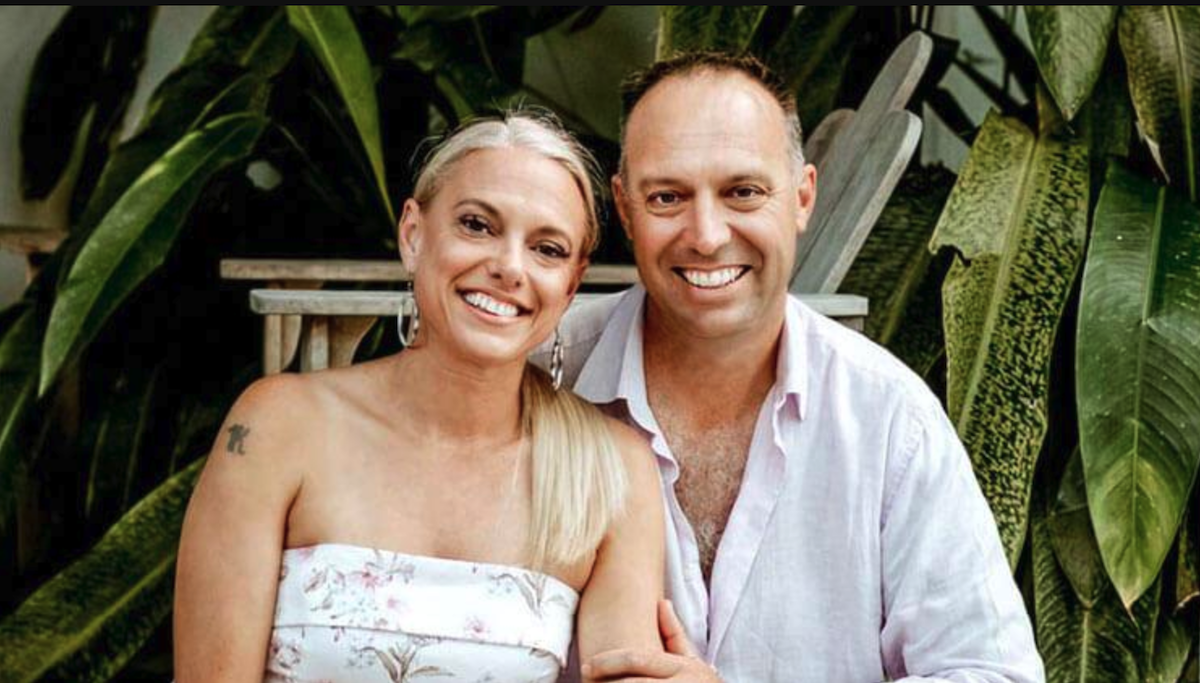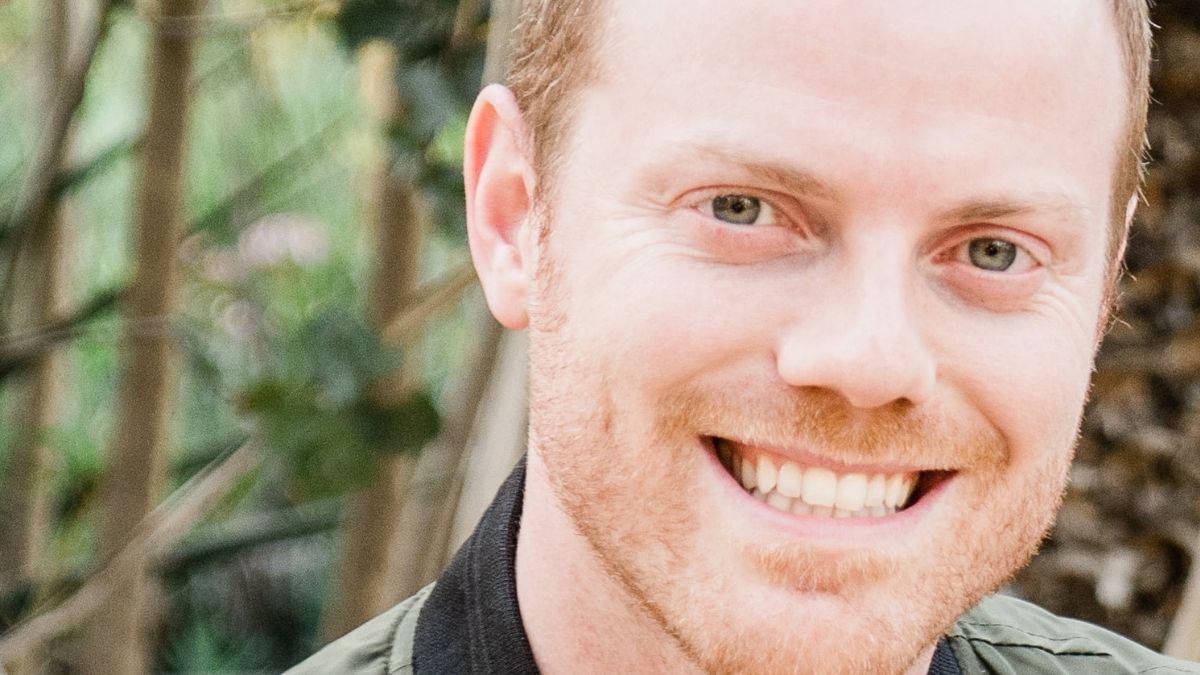The CEO in the Mirror: Conquering Self-Doubt to Unlock Your Business's Next Level
There comes a point in every successful founder's journey that is rarely talked about. It's not the struggle to find the first customer or the challenge of making payroll. It’s the profound, and often lonely, challenge of success itself. You’ve built it. The business is working, it’s growing, it has a team, and it’s making a real impact. And yet, you know there’s another level. A higher peak you can’t quite see.
And the single biggest thing standing between you and that next summit is the person you see in the mirror every morning.
The skills, the mindset, and the sheer force of will that got you from zero to one are often the very things that prevent you from getting from one to ten. The journey to the next level is not an external one of strategy and tactics alone; it is a deep, internal journey of identity, self-belief, and letting go.
This was the very heart of a powerful and wonderfully candid conversation I had on my podcast with Nick. Nick is the founder of a remarkable business that, for 13 years, has been changing the lives of people with mobility issues. You can hear the passion and the purpose in his voice. He has achieved undeniable success. But he is asking the questions that define a true leader: "What's next? And how do I get there when I might be the one in the way?"
Our conversation explored the most profound challenges a founder can face: a potential changing of the guard, the battle with imposter syndrome, and the power of being challenged to greatness.
Today, I want to use Nick's courageous questions as a framework to talk about the inner work of leadership required to take your business, and yourself, to the next level.
The Ultimate Act of Leadership - Hiring Your Replacement
Nick is at a crossroads that many founders dream of and dread in equal measure. He knows that to truly work on his business—on the strategy, the vision, the big relationships—he needs to extract himself from working in it. He is considering hiring an external CEO.
His question was direct and insightful: "How will I know if it will be successful?"
This is not a question you can answer with a crystal ball. But you can answer it with a rigorous process and a profound level of self-awareness. The success of hiring a CEO depends less on the individual you hire and more on the readiness of the founder and the business.
1. Are YOU Ready? The Founder's Identity Shift
This is the hardest part. For 13 years, Nick's identity has been intrinsically linked to being the leader and the doer. Handing over the operational reins is not just a delegation of tasks; it’s a seismic shift in personal identity. You must be willing to let go of being the hero who solves all the problems. You have to be willing to see someone else run the plays while you design the playbook. You must be ready to find your value not in the daily decisions, but in the long-term vision. If you are not truly ready for this ego-shedding, you will unconsciously sabotage any CEO you hire by micromanaging, second-guessing, and undermining their authority.
2. Is the BUSINESS Ready? The Importance of Systems
You cannot hire a CEO to fix a broken, chaotic business that only runs because of your personal brilliance. That's not hiring a CEO; it's hiring a magician, and they don't exist. Before you can bring in a leader, you must have built a business that can be led. This means you have:
- Documented Systems and Processes: How does a sale happen? How is a customer onboarded? How are finances reported? These processes must be written down and repeatable.
- A Strong Leadership Team: There should be a layer of management below the CEO who can own their departments. A CEO manages managers; they don't manage frontline staff.
- A Clear, Articulated Vision: The new CEO's job is not to create a new vision for your company. Their job is to take your vision and execute it with world-class operational excellence. You must be able to hand them a clear destination; they are the expert pilot who will fly the plane.
3. The Hiring Process: A Partnership, Not a Placement
When you find the right person, the relationship between a founder and their CEO can be one of the most powerful partnerships in business. The founder provides the "why" (the purpose, the soul, the vision), and the CEO provides the "how" (the operational plan, the metrics, the execution). Look for a CEO whose values are in lock-step with yours, but whose skills are complementary to yours. They should be brilliant at the things that drain your energy. When this synergy exists, 1 + 1 doesn't equal 2; it equals 10.
The CEO in the Mirror - Battling Imposter Syndrome and the Tyranny of Self-Talk
During our conversation, Nick bravely brought up the "imposter syndrome"—that persistent, nagging feeling that you're a fraud and are going to be found out at any moment, despite all evidence to the contrary. He asked me what I do to manage the negative thoughts that inevitably creep in.
Let me be perfectly clear: imposter syndrome is not a sign of weakness. It is often a sign of intelligence and ambition. It means you are pushing yourself into new territory, beyond your comfort zone. I have felt it. Every successful person I know has felt it. The goal is not to eliminate it forever, but to learn how to manage it so that it doesn't paralyze you.
Here are the practical strategies I shared with Nick and that I use myself:
1. Acknowledge and Name the Voice: The first step is to stop fusing with the negative thought. You are not the thought; you are the one who is aware of the thought. When that voice pipes up—"You're not qualified for this," "You're going to fail"—don't fight it. Simply acknowledge it. "Ah, hello self-doubt, I hear you. Thanks for sharing." This simple act of naming it creates a space between you and the thought, robbing it of its power.
2. Counter Feelings with Facts: Imposter syndrome is a feeling, not a fact. Your feelings are not reliable narrators of reality. The most powerful antidote is cold, hard evidence.
- The Feeling: "I'm a fraud."
- The Facts: "I have successfully run this business for 13 years. We operate in multiple countries. We have a team of dedicated people who choose to work here. We have thousands of customers whose lives are better because of our work."
Keep a "brag file" or a "kudos folder" in your email. When you get a wonderful piece of customer feedback or a note of thanks, save it. On a bad day, open it up and read the facts.
3. Curate Your Inputs: Your mind is like a garden. If you let weeds grow unchecked, they will take over. You have to be a ruthless curator of what you allow into your mind. Who do you follow on social media? What books and articles do you read? What podcasts do you listen to? If your information diet is full of negativity, comparison, and fear, your inner world will reflect that. Unfollow, unsubscribe, and unplug from anything that doesn't inspire, educate, or empower you.
4. The Power of an Annual Theme: This is my personal secret weapon. Every year, I choose a single word to be my guide. One year, it was "Courage." When a negative thought arose, my counter-script was, "What would be the courageous action here?" Another year, it was "Listen." When I felt the urge to jump in and talk, my theme reminded me to pause. This theme provides a powerful, positive, and proactive internal script that overrides the reactive, negative one.
The Gift of the Challenge - Being Pushed Towards Greatness
This leads to the final, crucial part of our conversation: the role of external challenge in building internal strength. One of the best ways to quiet your inner critic is to surround yourself with people who believe in you and are willing to challenge you to be your best self.
A comfortable echo chamber is the enemy of growth. You need people in your life who will not just pat you on the back, but will look you in the eye and ask the tough questions.
- "Is this truly the best use of your time?"
- "Is that a real obstacle, or a story you're telling yourself?"
- "You say you want X, but your actions are leading to Y. What's going on?"
This kind of challenge is a profound gift. It's a sign of deep respect. It says, "I believe you are capable of so much more, and I'm not going to let you settle."
You find this gift in a few key places: a formal Board of Directors, a structured peer advisory group of other founders, a professional coach or mentor, and, if you're lucky, a brilliant CEO who sees it as their job to challenge your assumptions for the good of the business. Iron sharpens iron. Embracing this challenge is how you are forged into the leader you need to become for your business's next chapter.
A Conversation for Every Founder at a Crossroads
Our conversation on the podcast was a deep, raw, and honest exploration of these themes. You can hear Nick's genuine passion and his vulnerability as we work through these complex, personal issues in real-time. It’s a powerful look at the internal world of a successful founder who is bravely facing the challenges of his own growth.
Your Next Level is an Inside Job
The journey from a successful business to a legacy business, from a thriving enterprise to a global powerhouse, is paved with personal evolution. It requires a leader to do the hard internal work: to shift their identity, to master their inner monologue, and to courageously embrace challenges that push them beyond their limits.
Nick is standing at this threshold, asking all the right questions. His journey reminds us that your business cannot outgrow its leader. The work you do on yourself—on your self-talk, your self-doubt, and your self-belief—is the most valuable strategic work you will ever do. This is how you unlock your next level. This is how you become the leader your business is waiting for.






